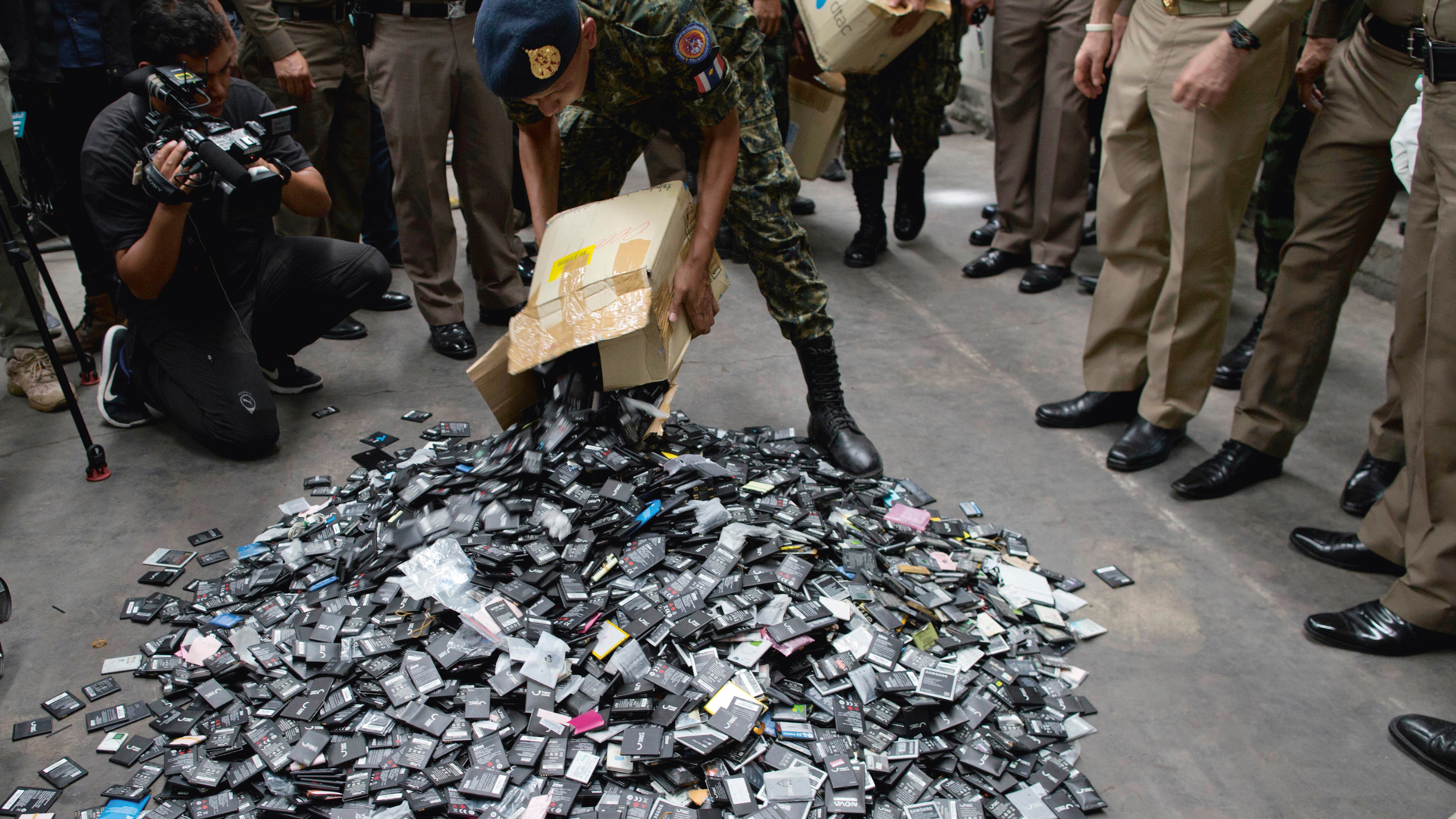With e-waste volumes mounting across the world, it’s clear the current system of electronics take-back is not keeping up with new production.
Compounding the issue is the electronics industry’s desire to sell us annual upgrades, touted through sale events like Black Friday, coupled with efforts to make DIY repair of their devices as difficult as possible. This is most easily visible with Apple’s annual upgrade cycle for its iPhones. Facing total market saturation for their devices, makers are moving to boost sales with continuous updates and design tweaks, tempting consumers to buy new devices almost every year.
Repair and recycle
Apple and others are also pursuing a fierce ‘right to repair’ battle, ensuring that getting a cracked screen replaced or that waning battery upgraded is hard work. Apple, for instance, is actively campaigning to close down independent repair shops that offer fixes for mobile devices to ensure consumers remain in the Apple ecosystem where of course upgrading, rather than repairing, is seen as the norm.
Earlier in November, the company struck a deal with Amazon to allow the phone company to kick unauthorised Apple refurbishers off the Amazon marketplace. The company’s new MacBooks come with propriety repair software built in, which lock out independent repair shops from being able to fix the devices. Microsoft is also looking to clamp down on consumers getting their devices repaired elsewhere. The company is being sued in the US for scaring consumers with a security seal that makes buyers think their warranty will be void if they take in their Xbox games console for repair.
“In the past five years, many companies introduced increasingly less repairable and upgradable products, including Apple’s MacBook laptop line and Samsung’s and LG’s smartphones,” said Greenpeace. “Unlike laptops, which have historically been designed to allow users to replace the battery or memory when these parts fail, tablets and smartphones now rarely have these features, which necessitates purchasing a brand new product when one part fails.”
Other manufacturers, like Motorola, are taking more positive steps. The company has recently partnered with independent electronics repair giant iFixit to provide ‘Fix Kits’ to consumers and repair shops, prolonging the life of their electronics. “We believe Motorola is setting an example for major manufacturers to embrace a more open attitude towards repair,” said iFixit. “Big business and social responsibility, and innovation and sustainability, don’t need to be mutually exclusive. We feel Motorola is setting an industry-leading example of a company that’s looking forward.”
It’s the reason we’re championing our changemakers like Bas van Abel, who appeared in last week’s Big Issue, and Sophie Unwin from earlier this month. They’re committed to ensure our love affair with gadgets isn’t wrecking the planet. Unwin, for example, is establishing a global network of electronics repair workshops designed to teach consumers the benefits of fixing your own tech. Abel founded Fairphone, an ethical smartphone startup that offers modular upgrades you can make yourself.
But we’re a long way from a sustainable electronics marketplace, and with online shoppers in the UK spending £1.4bn across Black Friday weekend last year – according to retailer trade body IMRG – it shows no sign of slowing.
Image: Shutterstock









